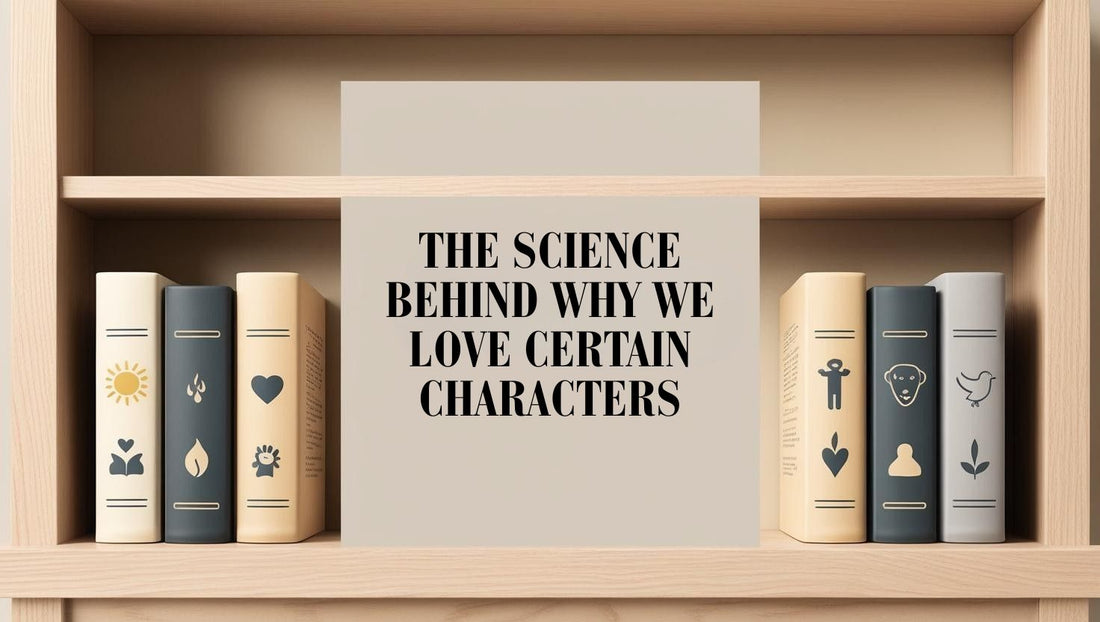
The Science Behind Why We Love Certain Characters
Table of content
- 1. Key Takeaways
- 2. The Science Behind Why We Love Certain Characters
- 3. Our Brains Treat Characters Like Real People
- 4. Relatability Matters More Than Perfection
- 5. Growth Arcs and Redemption Stories Keep Us Hooked
- 6. Archetypes, Tropes, and Familiar Patterns
- 7. The Role of Dialogue and Voice
- 8. Why Villains and Antiheroes Win Us Over
- 9. Character Attachment Across Different Ages
- 10. How Storytelling Structure Affects Our Attachment
Key Takeaways
- We connect with fictional characters the same way we connect with real people.
- Flawed, vulnerable, or growing characters feel more human—and easier to love.
- Familiar tropes and voices shape our preferences over time.
- Story structure and emotional pacing build our attachment.
- Our age, personality, and life experience influence the characters we care about.
The Science Behind Why We Love Certain Characters
We all have that one character who sticks with us. Maybe it’s a clever underdog, a misunderstood villain, or someone who reminds us of ourselves. But why? The answer isn’t just emotional—it’s also scientific.
Our Brains Treat Characters Like Real People
When we read about a character’s pain or joy, our brains light up as if we’re experiencing it ourselves. Research on mirror neurons shows that fiction stimulates the same neural pathways involved in empathy.
- These connections are called parasocial relationships—one-sided bonds we form with people (or characters) we don't actually know.
- The more realistic and consistent the character, the more our brain treats them as real.
Scientific American explains how fiction improves empathy through these deep neural processes.
Relatability Matters More Than Perfection
Characters who are flawed, awkward, or uncertain often make the strongest impact. We see ourselves in them.
- Perfect characters feel distant.
- Imperfect characters feel like people we know.
Check out Books That Help With Stress Relief and Relaxation to see how readers connect with characters going through tough times. We don’t love characters for being flawless—we love them for being familiar.
Growth Arcs and Redemption Stories Keep Us Hooked
Watching a character change—or try to—keeps us engaged. Redemption stories, in particular, give us hope.
- Characters who overcome shame, failure, or guilt feel real.
- Their struggles and wins trigger dopamine in our brains.
The Top 5 Book Series to Dive Into Right Now often feature strong arcs that draw us back again and again.
Archetypes, Tropes, and Familiar Patterns
We fall in love with familiar types: the reluctant hero, the chaotic best friend, the brooding loner. These aren't just clichés—they’re psychological patterns.
- Jung called them archetypes—universal characters hardwired into our brains.
- Readers often return to the same types of characters again and again for comfort and clarity.
See how these patterns appear in 10 Books Every Book Lover Should Read At Least Once.
The Role of Dialogue and Voice
Sometimes, it's not what a character says—but how. Characters with a strong voice stick with us.
- Voice can show personality, humor, or even vulnerability.
- Memorable dialogue helps build a character's presence in your mind.
If you’re curating character-themed gifts, check out How to Create a Personalized Book Gift Box for some fun, voice-inspired ideas.
Why Villains and Antiheroes Win Us Over
We’re often drawn to characters who break the rules—especially if they’re smart, funny, or secretly kind.
- Risk-takers can trigger our reward system.
- Complexity is attractive: a villain with a tragic backstory or a sense of justice challenges our thinking.
Read Why We Love Villains to understand the psychology behind the love for darker characters.
Character Attachment Across Different Ages
Age changes how we connect with characters.
- Teens might love rebellious, emotional characters.
- Adults may prefer introspective or wise figures.
In Guide to Starting a Book Club With Friends, notice how different age groups lean toward different book types—and characters.
How Storytelling Structure Affects Our Attachment
It’s not just the character—it’s the story around them.
- Cliffhangers, slow reveals, and immersive settings boost emotional connection.
- A character in a rich world feels more believable and magnetic.
Explore Book to Movie Adaptations to see how much structure matters in shaping our love for characters.
Is it normal to feel emotionally attached to fictional characters?
Yes. Your brain can treat them like real people—especially if the story is immersive.
Why do I like some characters my friends don’t?
It depends on your values, past experiences, and even age. Everyone connects differently.
Can fiction change how I see myself?
Absolutely. Characters can inspire reflection, growth, or even healing.
Why do I cry when fictional characters suffer?
Your emotional brain doesn’t always separate fiction from real life—especially during intense scenes.







